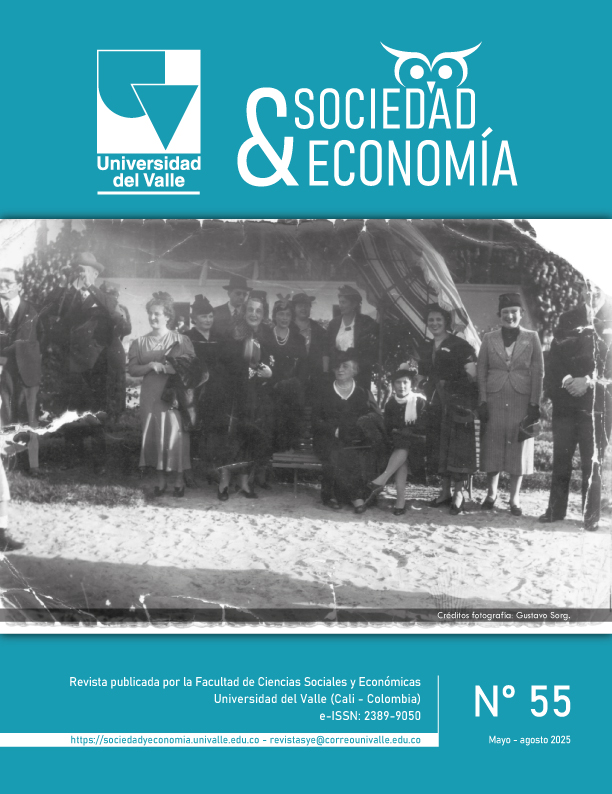Hofstede’s Cultural Dimensions in Mexican Literature
Keywords:
Key words: cultural dimensions, power distance, masculinity, indulgence, Mexican literatureMain Article Content
This research is based on Hofstede’s work about Cultural Dimensions applied specifically to Mexican culture as it appears in the work of famous Mexican literature writers. The research made by Hofstede on 74 countries describe some traits that are common to these countries in different degrees, and serve as a basis for further studies regarding the particular and profound meaning that each country gives to that dimensions. In the case of this study an analysis is made of the three dimensions where Mexico scores highly: Power Distance, Masculinity and Indulgence. The research method is based on the analysis of Mexican literature and history due to the holistic and integrative character of these two disciplines. The findings corroborate greatly the high scores of these three dimensions, and give an explanation of their psychological meaning for Mexican people.
Benítez, F. (1970). El agua envenenada. México: Fondo de Cultura Económica, segunda reimpresión.
Brown, D. (1991). Human Universals. New York: Mc Graw Hill Humanities Social.
Castillo, L., Garzón-Vera, B., López, M., & Torres-Toukoumidis, A. (2023). Formación Interdisciplinar para el Sector Cultural, Tomo I. Cuenca, Ecuador: Universidad Politécnicca Salesiana.
De Soto, H. (2001). The Mistery of Capital. Londres: Bantam Press.
Fuentes, C. (2005). La Región más Transparente. México: Decimoprimera reimpresión, Alfaguara.
Fuentes, C. (2019). La Muerte de Artemio Cruz. México: Alfaguara. Penguin Random House Grupo Editorial.
Fuentes, C. (2021). Cuentos Naturales. México: Alfaguara. Penguin Random House. Grupo Editorial.
Hatch, M. J. (2004). Dynamics in Organizational Culture. En M. Poole, & A. Van de Ven, New Directions in the Study of Organizational Change (págs. 1-54). New York NY: Oxford University Press.
Hofstede, G. (1994). The Business of International Business is Culture. International Business Review, 3(1), 1-14.
Hofstede, G. (2001). Culture´s Consequences: Comparing Values, Behaviors, Institutions and Organizations Across Nations. Thousand Oaks, CA, California, USA: Sage Publications.
Hofstede, G., & Hofstede, G. J. (2005). Cultures and Organizations: Software of the Mind. New York: Mc Graw Hill.
Jaques, E. (1951). The Changing Culture of a Factory. Londres: Tavistock Institute.
Laborit, H. (1973). Los comportamientos: Biología, Fisiología, Farmacología. Paris: Masson.
Matute, A. (1984). La Población Novohispana en 1799. En M. Abad y Queipo, Antología: México en el siglo XIX Fuentes e intermpretaciones históricas (págs. 61-74). México: Universidad Nacional Autónoma de México.
Mc Luhan, M. (1964). Understanding Media. W. Terrence Gordon.
Minkov, M. (2007). What makers us different and similar: A new interpretation of the World Values Survey and other cross-cultural data. Klasika i Stil, Sofia, Bulgaria.
Minkov, M. (Mayo de 2009). Predictors of Differences in Subjective Well-Being Across 97 Nations. Cross-Cultural Research, 43(2), 152-179.
Mintzberg, H. (2015). Rebalancing Society: Radical Renewal Beyond Left, Right and Center. Oakland, CA: Barret-Koehler Publishers, Inc.
Nietzsche, F. (2010). Así habló Zaratustra y Más allá del bien y el mal. Madrid: Editorial Gredos.
Owen, R. (1813). A New View of Society. London: The Anarchist Library.
Pascal, B. (1670/1963). Pascal Oeuvres Complètes: Trois Discours sur la Condition des Grands. Paris: Éditions du Seuil.
Paz, O. (1981). El laberinto de la soledad. México: Fondo de Cultjra Económica.
Rifkin, J. (2016). Empathic Education: The Transformatio of Learning in an Interconnected World. Conferencia no publicada. Londres.
Rulfo, J. (2017). Antología Personal. México: Ediciones Era.
Rulfo, J. (2022). Pedro Páramo. México: Editorial RM y Fundación Juan Rulfo.
Schopenhauer, A. (2002). El arte de tener siempre la razón y otros ensayos. Aforismos sobre el arte de saber vivir. México: Punto de Lectura.
Tenzin-Palmo, J. (2011). Into the Heart of Life. Londres: ReadHowYouWant.com Limited.
Villalpando, J. M. (2024). https://www.google.com/search?q=villalpando+historiador&sca_esv=247a3cc0ba513c42&tbm=vid&ei=J9gGZ4KDKqDcwN4P36XeuAc&start=30&sa=N&ved=2ahUKEwjCso7-goKJAxUgLtAFHd-SF3c4FBDy0wN6BAgOEAk&biw=1094&bih=454&dpr=1.25. Recuperado el 20 de 6 de 2024, de Héroes o Villanos: Antonio López de Santa Anna: https://www.youtube.com/watch?v=PbnEh1UiFHU
Villalpando, J. M. (2024). https://www.google.com/search?q=villalpando+historiador&sca_esv=247a3cc0ba513c42&tbm=vid&ei=MtUGZ_rwDKTbwN4PgOza4Ag&start=10&sa=N&ved=2ahUKEwj60fWUgIKJAxWkLdAFHQC2FowQ8tMDegQIDRAE&biw=1094&bih=454&dpr=1.25. Recuperado el 20 de 6 de 2024, de La independencia desde el punto de vista de los realistas: https://www.youtube.com/watch?v=CV2QMrAORek
Yáñez, A. (1969). Al Filo del Agua. México: Editorial Porrúa, S.A.
Zunzunegui, J. M. (2014). La Tiranía de las Ideas. México: Penguin libros MX.
Downloads

This work is licensed under a Creative Commons Attribution-NonCommercial 4.0 International License.
Revista sociedad y economía editada por la Facultad de Ciencias Sociales y Económicas de la Universidad del Valle se encuentra bajo una Licencia Internacional Creative Commons Atribución - No comercial 4.0
Basada en una obra en http://sociedadyeconomia.univalle.edu.co

